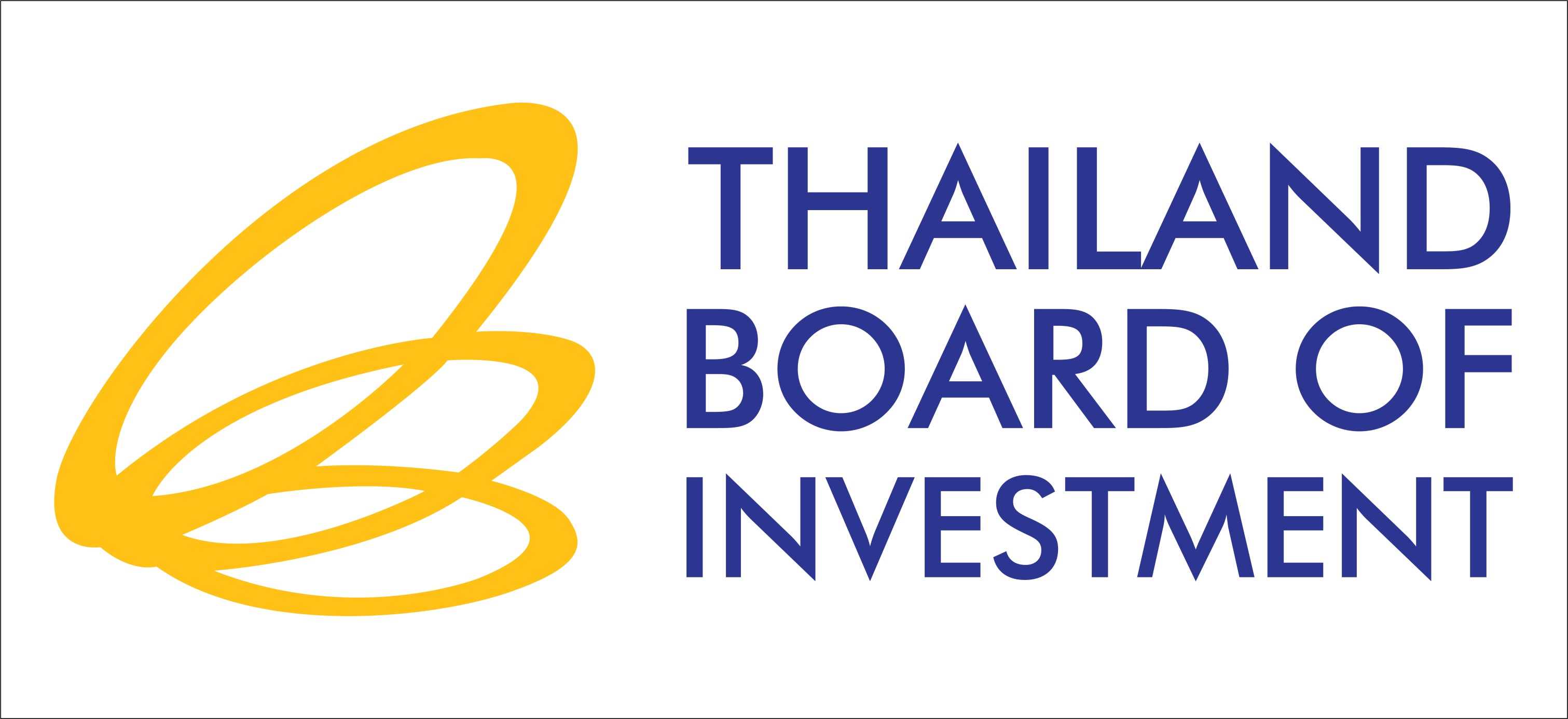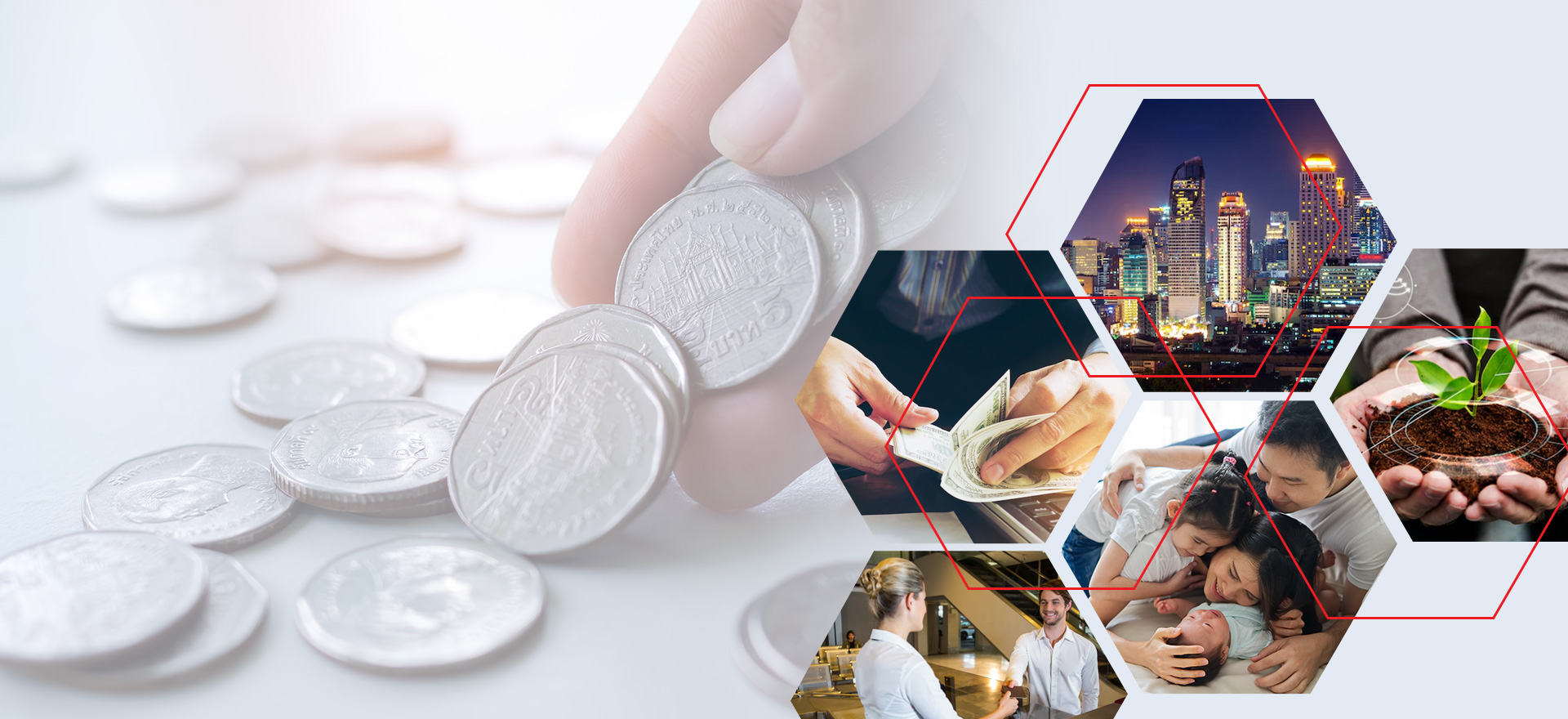Sustainability/Mae Fah Luang
Sustainability/Mae Fah Luang
Chatrudee Theparat
Biodiversity credit is a transformation to sustainable business.
Biodiversity Credit is a new chapter of Mae Fah Luang Foundation’s transformation to sustainable business.
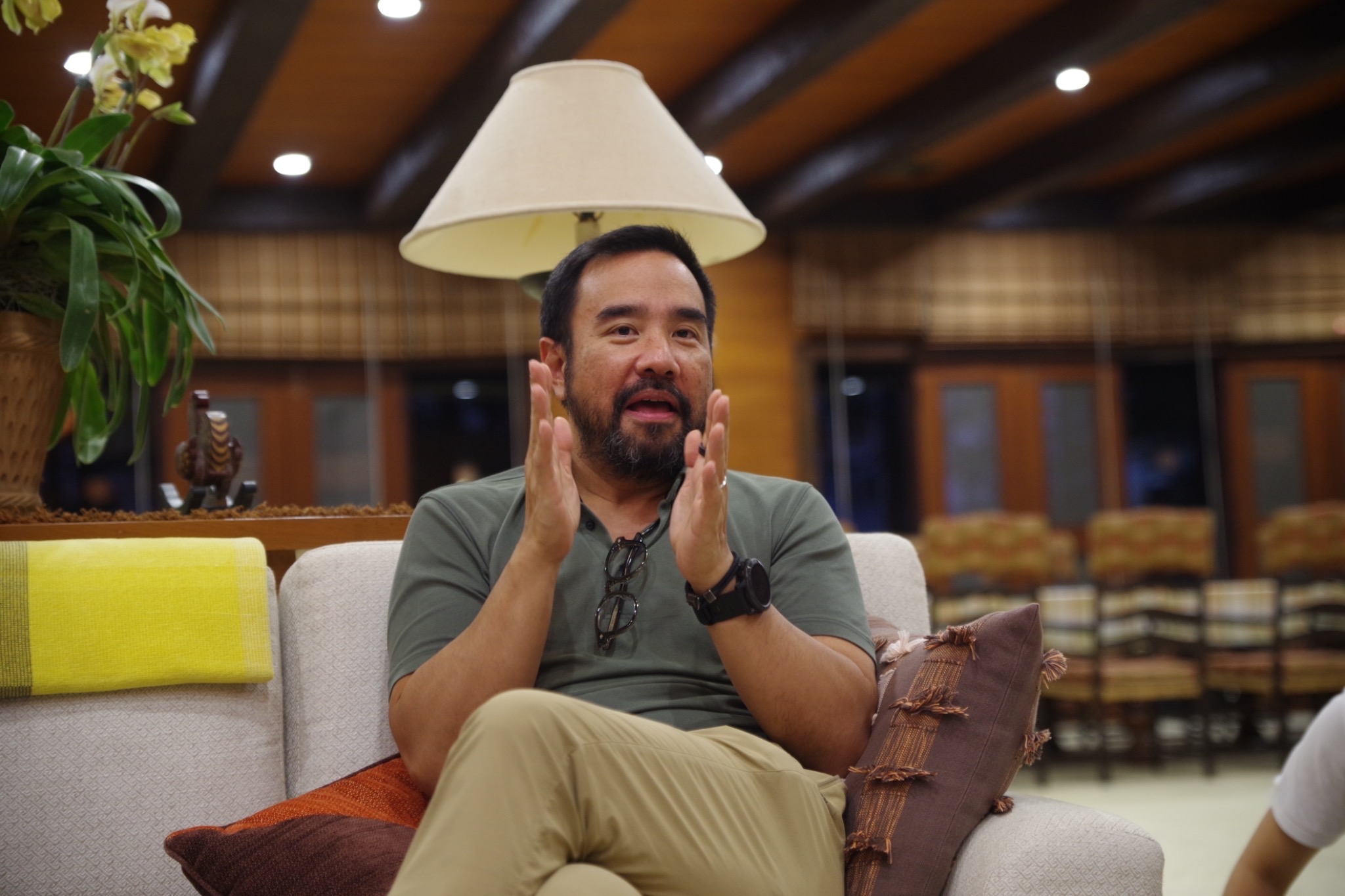
ML Dispanadda Diskul, chief executive officer of Mae Fah Luang Foundation, the operator of the Doi Tung Development Project, said the foundation is in the process of a transformation to more sustainable businesses, so called biodiversity credit (bio credit), which can purchase as carbon credit.
Bio credit is a new chapter of the DoiTung Development project to generate more income. The global trend is going to purchase bio credit, the topic was addressed in the World Economic Forum early this February, as well as in the latest 2023 UN Climate Change Conference in late 2023.
“We grow forest for almost 40 years, and this is our good opportunity when our strengths is conform to the global trend.”
Bio credit is a financial mechanism gaining popularity internationally. Unlike conventional financial loans, bio credit represents an asset created through investments in the restoration, conservation, and development of biodiversity in a specific landscape. It can subsequently be marketed locally and globally to enterprises interested in purchasing such assets to fulfill their corporate ESG obligations.
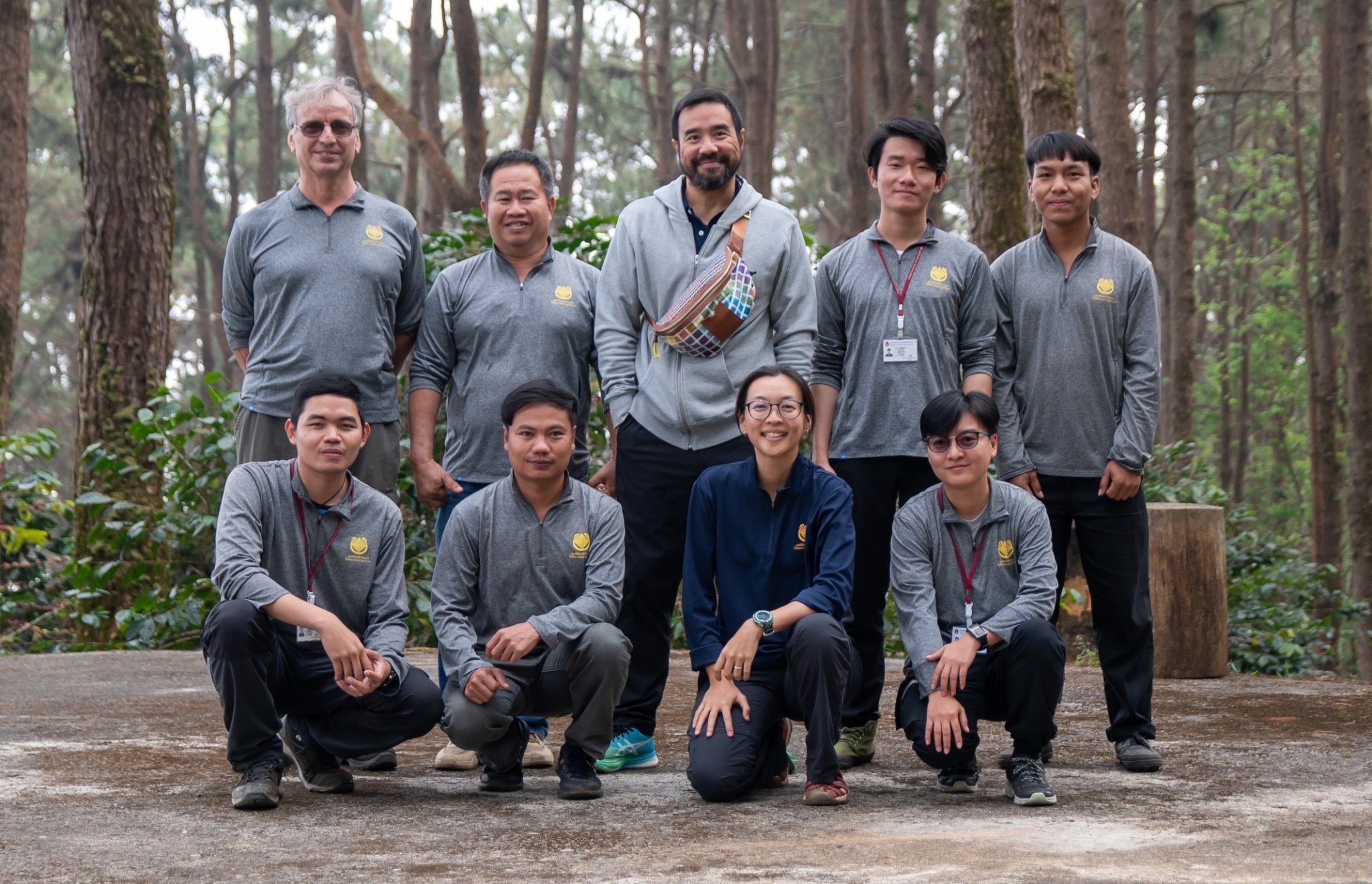
Doi Tung Development Project's team
WEF described that bio credit can help bridge the existing financing gap by mobilizing additional capital for biodiversity conservation and restoration. The 50% and more of the world's GDP is moderately or highly dependent on nature and the services it provides; 69% decline on average in species populations since 1970 with human activity pushing ecosystems towards irreversible tipping points and US$711 billion is the global biodiversity financing gap estimated annually to reverse biodiversity decline by 2030.
He said the foundation conducted a study on biodiversity for two years, while the indices which use to measure on biodiversity depends on each location. The implementing bio credit of the foundation is expected to be concluded soon.
“The Doitung Development Project continues study on biodiversity of the forest since 2004. We have expert team to work with communities which have their own wisdom on living in the forest. The team has improved bio diversity in a bid to create sustainability in Doi Tung Development Project.”
He expected bio credit project will help the foundation and community can generate more income as carbon credit project. Two projects can be implemented in the same area.
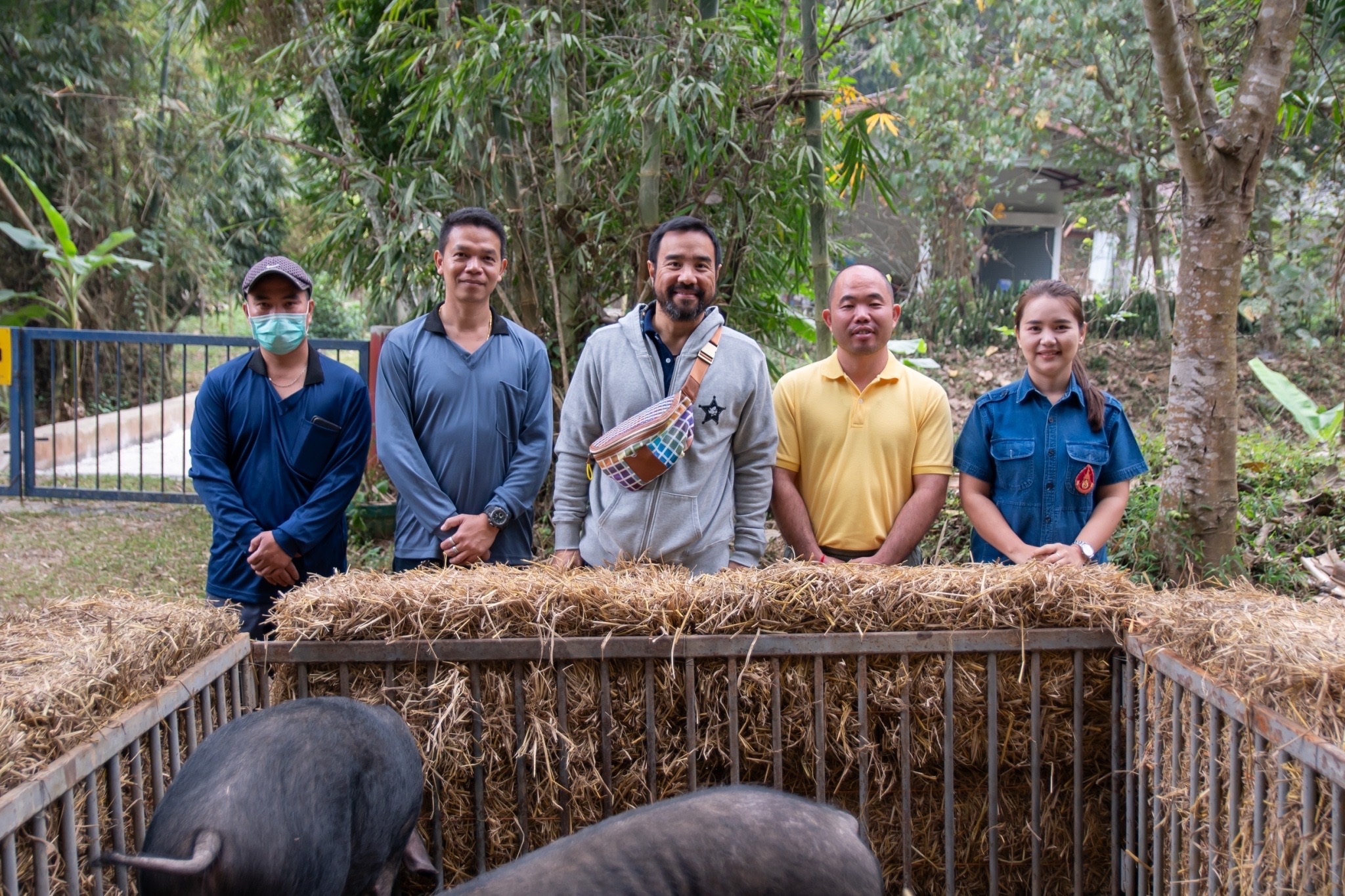
Two projects also are aimed at strengthening Doi Tung Development Project to have more self-reliance in long term and can offset other businesses such as agriculture and textiles which most of them are aging.
“I am 50 now and working here for 20 years. I plans to retire over the next five years. I expect to institute Doi Tung Development Project that mean there will be next generation or leaders to have capability to manage the project to survive in the future.”
Currently, there are 21 companies to participate in carbon credit project. The project had three phases between 2021 and 2023 covering 192, 646 rai of forest among 127 community forests and there are participants of 71,843 villagers with 24,325 families. The volume of the fund is 66.4 million.
The fourth phase of 2024, which has currently 200,000 rai, will expand additional 150,000 rai and total 72,000 participants with 75,000 tonnes of carbon credit.
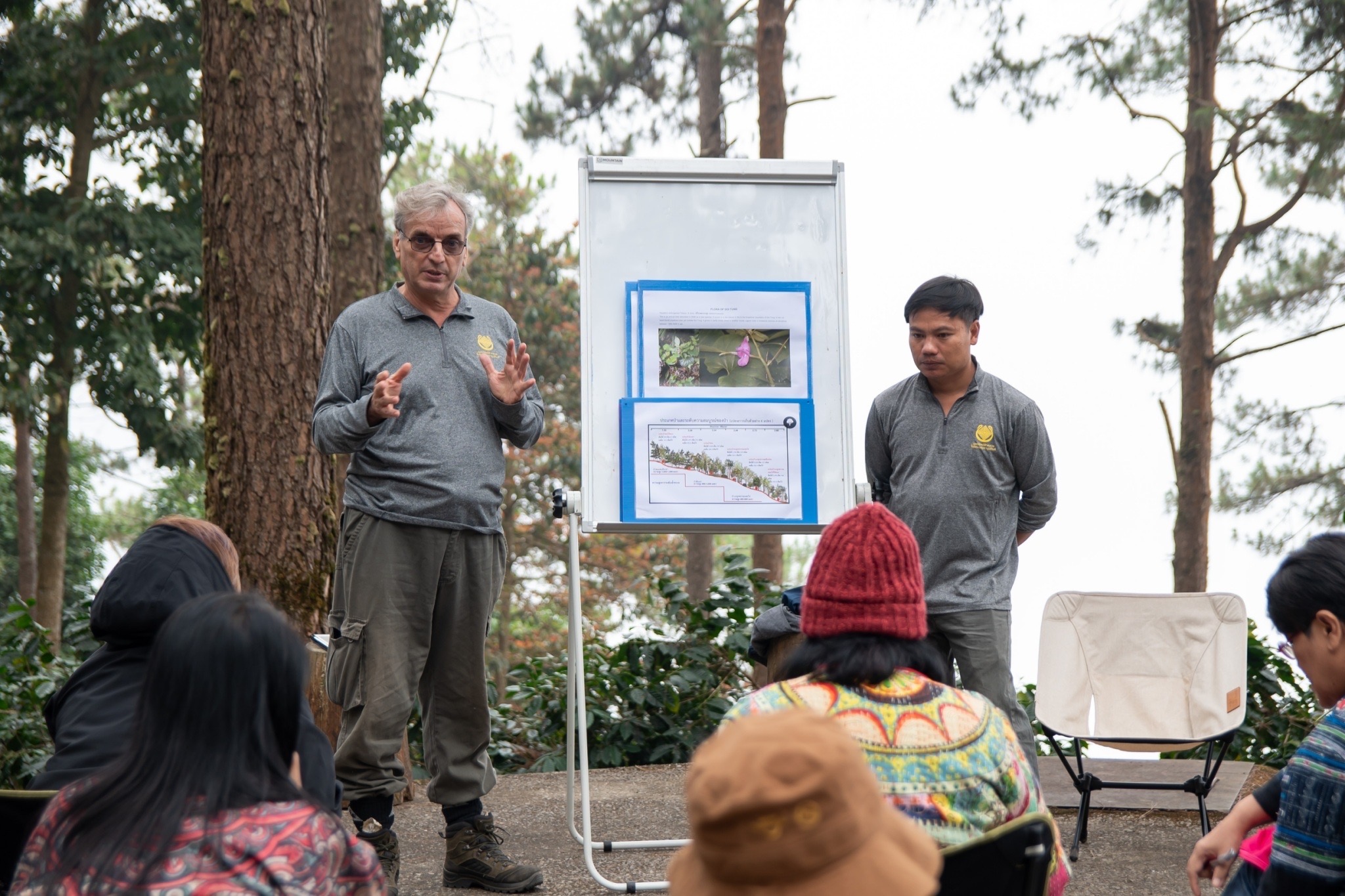
Martin Van de Bult, expert on botany of DoI Tung Development Project, said the survey on bio diversity in 2023 showed there were 1,379 plant species; nine were new items plants of the global. In 2023, there were 17 plant species which had been found in Doi Tung.
The survey also found four of endangered species of animals and more than 1,000 species of animal.
27 February 2024
Viewed 234 time
 EN
EN 

